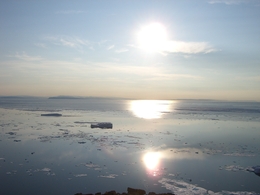Governance
 GOVERNACE is a social function centered on steering human societies away from bad outcomes (e.g. the depletion of fish stocks, the spread of hazardous wastes) and toward good outcomes (e.g. the regulation of persistent organic pollutants).
GOVERNACE is a social function centered on steering human societies away from bad outcomes (e.g. the depletion of fish stocks, the spread of hazardous wastes) and toward good outcomes (e.g. the regulation of persistent organic pollutants).
Governance Systems
Although governments often play a central role in the supply of governance, less formal arrangements are also important in meeting the demand for governance in many settings. We generally refer to governance systems that address problems arising from human-environment interactions (e.g. the arrangements dealing with climate change and the conservation of polar bears) as environmental or resource regimes. Such regimes play prominent roles at all levels of social organization from the local (e.g. informal rules governing the subsistence harvest of caribou in the North American Arctic) to the global (e.g. the long-range transport of persistent organic pollutants). Because there is no world government to deal with transnational problems, issue-specific regimes are particularly important in efforts to come to terms with large-scale problems such as climate change or the loss of biological diversity. The Arctic Governance Project covers the full range of environmental and resource regimes that are relevant to the pursuit of sustainability in the circumpolar Arctic.
Read more about Arctic governance arrangements.
